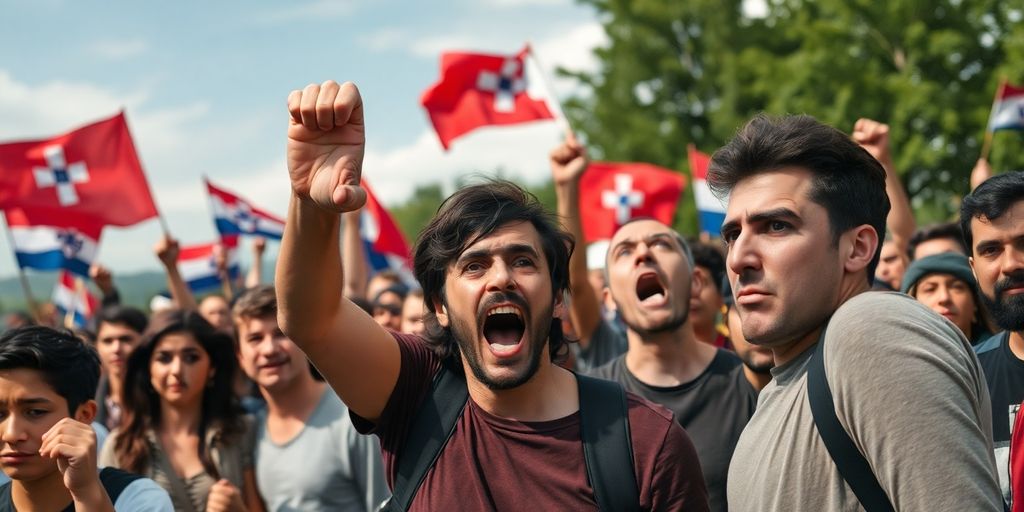Croatia has issued a strong warning to its citizens against traveling to Serbia following the recent detention and deportation of five Croatian activists. These activists were participating in a civil society meeting in Belgrade when Serbian authorities detained them, citing security concerns without providing further details.
Key Takeaways
- Croatia protests the deportation of five activists from Serbia.
- The activists were detained during a civil society meeting in Belgrade.
- Croatia has advised its citizens to avoid unnecessary travel to Serbia.
- Serbian authorities claim the activists posed a security threat.
- Tensions between Croatia and Serbia have been escalating recently.
Background Of The Incident
On January 23, 2025, Croatia’s foreign ministry expressed outrage after five Croatian citizens were detained by Serbian police while attending a meeting of civil society organizations in Belgrade. The activists reported that they were taken from their hotel without explanation, except for a document stating they were a threat to Serbia’s security.
In response, Croatia’s government demanded an explanation from Serbia and issued a travel advisory for its citizens, urging them to exercise caution and reconsider any plans to visit the neighboring country. The Croatian Interior Minister, Davor Božinović, questioned the legitimacy of the Serbian authorities’ actions, suggesting that the deportation was not an isolated incident but part of a troubling pattern.
Serbian Response
Serbia’s foreign ministry reacted to Croatia’s protest by labeling it as "inappropriate" and insisted that the activists were treated according to legal procedures. They challenged Croatia to explain why other Croatian citizens in Serbia had not faced similar issues, implying that the activists’ actions warranted their deportation.
This incident comes amid rising tensions between the two countries, which have a long history of conflict dating back to the breakup of Yugoslavia in the 1990s. Recently, Serbia’s government has accused Croatian security services of inciting protests in Serbia, further straining relations.
Broader Implications
The deportation of the Croatian activists is part of a broader trend where Serbian authorities have increasingly denied entry to foreign citizens, claiming they pose a security risk. This has raised concerns among human rights organizations, which argue that such actions reflect a growing repression of dissent and civil society in Serbia.
In addition to the Croatian activists, reports indicate that citizens from Romania, Slovenia, Bosnia, and North Macedonia were also deported during the same period for participating in similar workshops. This pattern of behavior has alarmed human rights advocates, who fear it signals a crackdown on civil liberties in the region.
Conclusion
The situation between Croatia and Serbia remains tense as both nations navigate their complex historical relationship. The deportation of the activists has not only sparked diplomatic protests but also raised questions about the treatment of civil society in Serbia. As both countries grapple with their past, the future of their relations will depend on how they address these ongoing tensions and the rights of their citizens.
Sources
- Croatia warns against travel to Serbia after 5 civil society activists were deported | Ap-world | wfmz.com, WFMZ.com.
- Balkan Cold Cases #1: Croatian Officer Murdered for Exposing War Crimes | Balkan Insight, Balkan Insight.
- Croatia warns against travel to Serbia after 5 civil society activists were deported, The Spec.
- Croatia protests detention and deportation of 5 citizens in neighboring Serbia | Ap | thederrick.com, thederrick.com.






